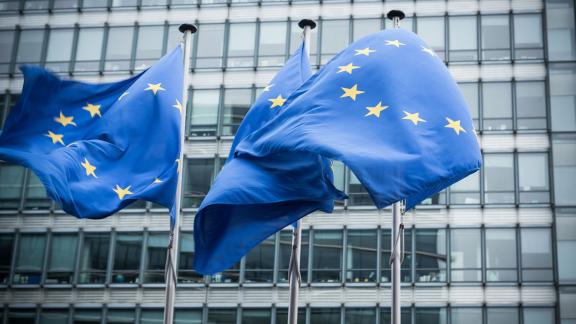Brexit: latest updates

The UK-EU negotiations
NI Protocol
After four months of intense talks, the EU and U.K. have reached a deal to resolve their long-running post-Brexit trade row over Northern Ireland. The "Windsor Framework" aims at easing customs red-tape, equalising some tax rules across the United Kingdom, and giving Northern Ireland’s lawmakers more of a say over the future of the arrangement.
In their Joint Declaration, the two sides set out that "these new arrangements will facilitate internal UK trade and are underpinned by solid safeguards for the protection of the EU Single Market. They provide certainty and stability for citizens and businesses in Northern Ireland".
The NHS Confederation has welcomed the new arrangements as a positive step to ending the uncertainty around patient and public access to medicines in Northern Ireland (read the medicines explainer) and that the EU has agreed in principle to allow the UK back into the Horizon Europe funding programme.
Background
The Brexit deal
The trade and cooperation agreement was concluded between the UK and EU on Christmas Eve and addresses many of the concerns repeatedly expressed by the NHS Confederation and Brexit Health Alliance over the last four years. Inevitably the new relationship between the UK and EU has resulted in more complex and time-consuming procedures compared with the rules that applied when the UK was a member of the EU. For a detailed assessment of the impact of the deal, you can read the European Office’s briefing.
The NHS Confederation also hosted an online event ‘What does the new Brexit trade deal mean for the NHS?’, looking at the impact of the Brexit deal on the NHS and wider health sector that supports it. The session detailed where we are in the process, shared a full run down of the agreements that have implications for health, and discussed what changes can be expected and where members can find the latest advice and guidance on Brexit issues. Visit the event page for the recording and presentation from the session.
The EU-UK Joint Committee
The Joint Committee has the overall responsibility to oversee and monitor the application of the UK-EU Withdrawal Agreement, including the Northern Ireland (NI) Protocol, which entered into force on 1 February 2020. It is co-chaired by the UK and the EU – the UK co-chair is Chancellor of the Duchy of Lancaster, Rt Hon Michael Gove MP and the EU co-chair is European Commission Vice-President, Maroš Šefčovič.
The Cabinet Office has consulted on Government engagement with business and civil society groups on implementation of the TCA, which will include setting up a Domestic Advisory Group and Civil Society Forum. The NHS Confederation and other Brexit Health Alliance members responded, highlighting the importance of the health sector having a “seat at the table” and a genuine opportunity to influence the work of the Partnership Council.
Citizens rights and reciprocal healthcare
A new body, the Independent Monitoring Authority for the Citizens’ Rights Agreements, has been set up to ensure that the rights of EU and EFTA citizens enshrined in the WA and TCA are implemented in the UK.
Neither the TCA nor the recent trade deals between the UK and EFTA countries include reciprocal healthcare provisions, but the UK Government is hoping to conclude such agreements shortly. Agreement on reciprocal healthcare has been reached for Gibraltar and Switzerland which are similarly outside the scope of the TCA.
Accessing healthcare in the EU from 1 January 2021
The Government has launched its new Global Health Insurance Card (GHIC), which will gradually replace the existing European Health Insurance Card (EHIC) and which will continue to guarantee the rights of UK citizens to receive emergency and medically necessary healthcare when travelling in the EU - this includes medically necessary treatment for a pre-existing or chronic condition. Current EHICs will remain valid for as long as they are in date and people can continue to use them when travelling in the EU and application for the replacement GHIC will only be necessary when a current EHIC expires. The new GHIC is free and can be obtained via the official website.



